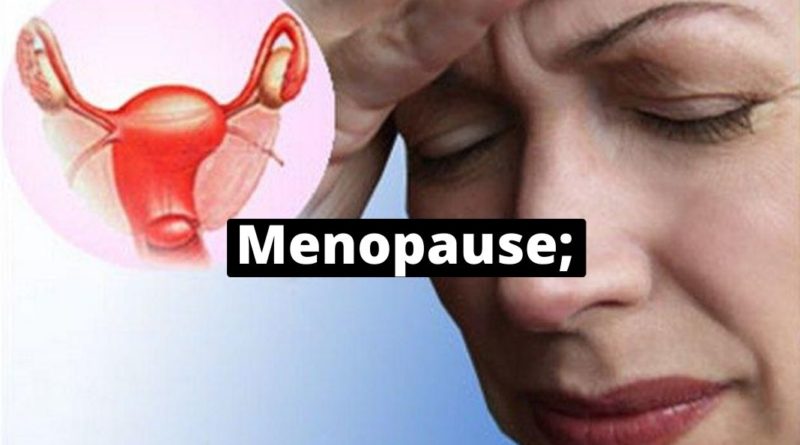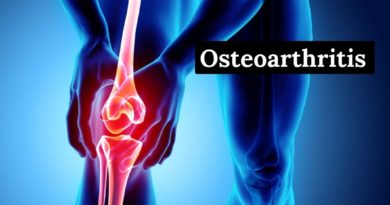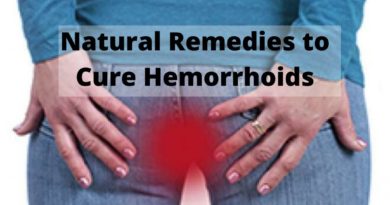What Is Menopause? Symptoms, Causes, Treatment, and More
What is menopause? Menopause is a crucial change in a woman’s life. It usually occurs around the age of 50 and is considered to have started when the woman has not had her period for a year. Many women experience menopausal symptoms and irregular periods for a few years, until menopause. This is the so-called climacteric and represents the gradual decline in the normal function of the ovaries.
Table of Contents
Why does menopause occur?
Menopause occurs because the ovaries are unable to perform the function of ovulation (producing one egg each month) for a long time. When a woman’s ovaries are unable to respond to hormonal signals from the brain, the production of female hormones (estrogens and progesterone) stops.
The cause of the symptoms of menopause is the drop in the levels of these hormones in the bloodstream.
Research on menopause is recent. A hundred years ago when life expectancy was shorter, many women did not live long in menopause and little was known about it.
What is menopause like?
All women experience menopause in different ways. Many do it without an apparent change of life, except for the fact that their periods become irregular and disappear. On the other hand, there are many others whose lives change completely because they suffer all the symptoms of menopause.
[Also Read: 7 things you need to know about menopause]
What kind of disturbances does menopause cause?
When women enter menopause, they often experience hot flashes or hot flashes. You can sweat a lot and later go on to facial redness. Attacks can occur at any time and often occur several times an hour early in menopause. Each hot flush lasts 3-6 minutes.
Some women have trouble sleeping. Often they fall asleep, are restless, and wake up in a sweat at night. Some women sweat so much that they have to change the sheets several times during the night.
Some women experience depression, mood swings, tiredness, and headaches. Others have trouble remembering things. Some of them have a slightly tolerant mood and are easily angry. They often cause confusion in the rest of the family.
Psychological changes are only part of it. But there are other changes
- During menopause, a woman’s skin becomes thinner.
Lack of estrogens often causes the glands in the vagina to not secrete for lubrication, causing pain and stinging during intercourse. Some women do not feel pleasure in relationships while others find that their orgasms are less intense. - Lack of estrogens also affects the bladder and women need to go to the bathroom more times.
- Osteoporosis (thinning of the bones) in relation to menopause is the subject of special attention. Decreasing estrogen for years makes the bones of menopausal women easier to collapse or fracture.
- There is a gradual increase in the risk of heart disease and heart attack after menopause. In addition, the decrease in estrogens produces unfavorable changes in cholesterol and fat levels in the blood, which predisposes to these diseases.
What can be done to fix menopausal symptoms?
Medical treatment involves adjusting the hormone levels of the woman who has problems with menopausal symptoms. Some hormonal treatments can make the rules reappear, although there are also menstruation-free types of medication.
This treatment is the so-called hormone replacement therapy (THS) (1) and consists of the woman receiving a small number of estrogens and progesterone daily.
THS is effective in resolving hot flashes, and many women report improvement in their general condition.
However, THS is not magic and if a woman has mood or behavior disturbances due to problems at home or at work, THS may not be the expectation that will solve her problems.
THS is often taken for a short period of time, from 6 months to a year to fix hot flashes (2). If a woman continues to take it for a period of two years or more, it increases protection against heart disease and late bone fractures that occur in the 60s-70s.
There are recent studies that show evidence that the use of THS slows the development of Alzheimer’s disease and bowel cancer.
How is THS taken?
There are many ways to take THS. The most usual is taking one tablet daily, but alternatives include transdermal patches, a small implant under the skin, or a gel applied daily to the skin.
What kind of side effects does THS have?
Most women have no side effects, but the most common are:
- Sickness
- Breast pains
- Weight gain
- Fluid retention
Most of these symptoms disappear after the first months of treatment. If they do not disappear, the gynecologist should be consulted to adjust the medication.
On some occasions, Hormone Replacement Therapy cannot be used, either because it is contraindicated or because it is not tolerated by women. In these cases, we have other alternative treatments.
Is THS safe?
On balance women who take THS live longer than those who do not. Even the mentioned side effects are minor when compared with other more serious ones that can appear without THS.
Women who take HRT for 5 years or more appear to have a significantly increased risk of breast cancer. These 5 years must be counted from the age of 50 or over, before the age of 50 it does not count. This does not mean that the woman should automatically stop taking it after 5 years, but that breast cancer surveillance and breast self-examination should be carried out to detect lumps.
There is also an increased risk of venous thrombosis (blockage in the leg veins by clots) during the first 6 months of initiation of HRT. The risk is very low, but women with a previous episode of thrombosis need special blood tests before starting treatment. The decision to receive treatment should be based on weighing the benefits against the risks of receiving it. The treatment is under medical prescription and it is the doctor who must warn of these risks before starting the treatment.
What can be done to have easier menopause?
- Exercising regularly or walking 20-30 minutes three to four times a week can improve health and add years to your life. Exercise strengthens bones, increases the quality of life, and makes you sleep better.
- Eating the right thing is very important. For healthy bones, the body needs about 1,500 mg of calcium each day from dairy and cheese.
- Eat plenty of fruit and vegetables. Recent studies show that eating 5 pieces of fruit or vegetables a day can prevent these diseases.
- Do not smoke since it is not good for health.
- Having a positive attitude can help make life change less traumatic. Menopause is the beginning of a new stage of life in which even great projects can be carried out.




